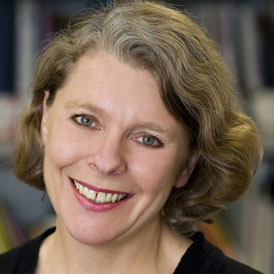‘We’ve protected poetry funding’ – Arts Council
After Poet Laureate Carol Ann Duffy led protests against cuts to the Poetry Book Society, Antonia Byatt of Arts Council England writes that the Council has tried to protect spending on poetry.

Our latest funding announcement represented one of the most challenging periods for the Arts Council in its 65-year history.
Our Government funding was reduced by 29.6 per cent, leaving us with many tough choices. It simply wasn’t possible to fund every application and we knew that not everyone would agree with all the 1,333 decisions we had to make.
The process we used to make these decisions was both transparent and fair, with an open application process allowing arts organisations all over the country to tell us how much funding they felt they needed, and importantly, what they would deliver in return.
We were very clear that there were going to be strong applications we would be unable to fund, and that our aim was to achieve the best possible results for the arts overall and deliver greatest value for money.
So what was the outcome for literature and, in particular, poetry? Despite the significant cut to the Arts Council’s budget, investment in literature will actually increased 9.9 per cent in real terms and we have managed to maintain our support for poetry, while many other artforms saw a decrease in funding.
The arts don’t stand still, they are constantly evolving, and our funding decisions reflect this shifting landscape.
In allocating our funding we tried to make sure that readers have access to a diverse range of high quality poetry (for example through our support for Bloodaxe and Carcanet); that children can be inspired by poetry through the likes of Apples and Snakes and Booktrust; that people can hear and enjoy poetry at festivals such as Lebury or Manchester, or at regular events organised by Poet in the City or the Southbank Centre; and that new talent is nurtured, mid-career poets are supported and established names are celebrated – working with organisations such as Poetry Business, The Forward Prize (Forward Arts Foundation) and Poetry London.
Chris Holifield of the Poetry Book Society puts the society's case - Why poetry needs Arts Council cash
We received some really ambitious and exciting applications which offered compelling visions of how we could reach new and existing audiences. In our judgement the Poetry Book Society’s reach and distribution was not as wide or effective as a number of other applicants.
However, as we have made clear to the Poetry Book Society (PBS), we remain committed to the TS Eliot prize and the crucial role it has in helping readers find the best in contemporary poetry and we hope to continue our relationship with the organisation.
The PBS will receive regular funding for another full year, which will give them time to adapt to the change in their circumstances.
I think there's a risk in making the Poetry Book Society the focus of this protest. The membership number of 2,000-2,500 for this particular organisation, and the fact that it has a viable business model, might not make it the best example for those campaigning against cuts. Those not involved in poetry can confuse it with the Poetry Society and think our main organisation has this small number of members. Poetry is much more popular than that.
Read Adele Ward's reply to Matthew Cain's blog: Why British poetry needs looking after.
And the new National Portfolio funding is not the only way that the Arts Council invests in the arts. Our Grants for the Arts scheme – an open application lottery funded programme – may prove appropriate for key elements of the PBS’s work. This grant programme is also suited to supporting small, independent publishers, with funding awarded to presses delivering valuable work in producing translation and poetry titles.
We believe we’ve chosen the right balance of poetry organisations to develop the artform in all areas of the country.
The arts don’t stand still, they are constantly evolving, and our funding decisions reflect this shifting landscape. We learnt a great deal about this landscape through the application process, enabling us to make considered choices to ensure England’s unrivalled poetry tradition not only endures, but thrives.
Antonia Byatt is Director, Literature, Arts Council England. Follow the Arts Council on Twitter at ace_press #ACEfunding